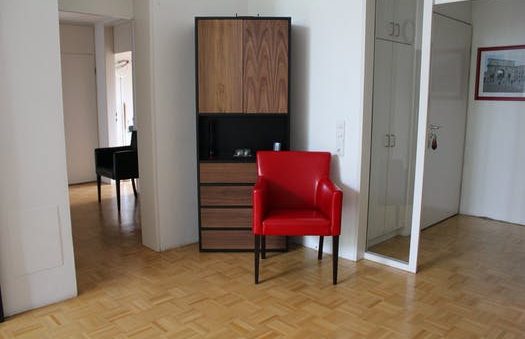Getting ready for a medical examination with a panel physician can be somewhat stressful, particularly if you’re concerned about language barriers. But don’t worry too much because overcoming these obstacles is well within reach, and you’ll find it’s a lot easier than you might expect. Here, we’re going to offer some practical tips and ideas on how to communicate and get through your medical examination smoothly and effectively.
Familiarize Yourself with Medical Terms
One of the most straightforward steps you can take is to familiarize yourself with basic medical terms in the language used by the panel physician. Understanding common medical terms can drastically reduce the chances of misunderstandings during your consultation. You can find many resources online, including language learning apps and medical dictionaries, which can help you learn these terms.
Use Translation Apps or Devices
We live in the age of technology, which means you have access to numerous translation apps and devices. These tools can beautifully break down the language barrier. Be sure to download offline versions, just in case there’s no internet access at the clinic. Apps like Google Translate can be a huge help, especially since they offer voice translation features. It’s always a good idea to spend some time experimenting with these apps before your appointment so you’re comfortable using them.
Bring a Trustworthy Interpreter
If you’re feeling anxious about the language barrier, consider bringing an interpreter with you. This could be a friend, family member, or a professional interpreter familiar with medical terminology. Their fluency in both languages can make the process smoother and alleviate any stress from misunderstood communications.
Prepare Questions Ahead of Time
Preparing a list of questions and concerns in advance can be incredibly helpful. Write these down in your native language, then translate them using your preferred method or with the help of a bilingual friend. This will ensure you’re not scrambling for words during the actual consultation, allowing you to focus on understanding the physician’s responses.
Practice a Bit of Patience
Patience goes a long way when dealing with language barriers. Both you and the panel physician are striving for clear communication, not rushing through the consultation. Take your time to ensure that each part of the dialogue is understood correctly, and don’t hesitate to ask for clarification. This mutual patience can forge a more comfortable environment for both parties.
Learn Basic Phrases
Taking the time to learn some basic phrases in the physician’s language showcases your willingness to bridge the language gap. At a minimum, learn the phrases for “Yes,” “No,” “Please,” “Thank you,” and “Help.” These can make the conversation flow more naturally and show your effort and respect for the physician’s language.
Make Use of Visual Aids
Visual aids can be quite handy when communicating across a language barrier. Use charts, diagrams, or physical gestures to help express what words fail to capture. These non-verbal cues can make complex medical discussions more tangible and understandable.
Double-Check Important Details
It’s always wise to double-check any crucial information discussed during the appointment. This can include confirming the next steps in your treatment plan, medication dosages, or follow-up appointments. Before leaving your appointment, consider summarizing what you’ve understood and asking the physician to confirm or correct any details.
Follow Up with Written Communications
After your appointment, ask if you can receive written documentation of your visit summary. Written material in both languages can be especially useful when reviewing what was discussed or needing to refer back to the physician’s instructions. Most practitioners would oblige this request, understanding its importance in cross-language communication.
Enrolling in a Language Course
If your healthcare interactions require frequent visits, it may be beneficial to enroll in a language course. Even a basic or beginner’s course can provide a foundation that enables you to understand and express yourself better. Language schools, community colleges, and online platforms offer various courses that can fit different schedules and budgets.
Seek Recommendations and Get More Information
Before you book an appointment, it might be helpful to get more information about panel physician services, especially from those who have experienced similar visits. They might offer insights into how the clinic handles language differences and share practical tips that worked for them. Gathering this information, whether through word-of-mouth or online forums, can better prepare you for the experience ahead.
Find a Multilingual Panel Physician
In some regions, you can locate panel physicians proficient in your native language. Doing some research online or through community health centers may lead you to a physician who can speak and understand your language, making the consultation much smoother.
Mentally Prepare for Some Language Challenges
Understanding that some level of challenge is expected and entirely natural can help ease your anxiety about the visit. Accepting that a few miscommunications might occur allows you to react calmly should they arise. It’s about managing expectations and staying positive through the entire process.
Have you wondered about consulting a panel physician in Vaughan for your next medical appointment? Exploring such options might be rewarding, especially if you find a practitioner who understands your language preferences and can cater to your specific needs.
Trust the Process
The healthcare process with a panel physician is largely standardized and systematic. It is crucial to trust that the physician wants the best outcome for your health. While language barriers exist, both patients and physicians share the common goal of effective healthcare communication.
Treat It as a Learning Experience
Embrace your visit as an opportunity to learn and adapt. This experience can improve your language skills over time, especially with repeated interactions. Emphasizing growth will help you stay motivated and optimistic.
Lastly, weigh the immigration medical exam price against the peace of mind you’ll receive from overcoming language barriers. Knowing that you’re taking the right steps toward a healthier future is a significant reward in itself.
Final Thoughts
In conclusion, overcoming language barriers when consulting a panel physician is all about preparation, resourcefulness, and open-mindedness. With the right mix of tools, patience, and support, language obstacles will become mere stepping stones on your path to achieving effective healthcare communication. Remember, both you and the physician aim for mutual understanding in your consultation, making any effort toward breaking down language barriers worthwhile.





